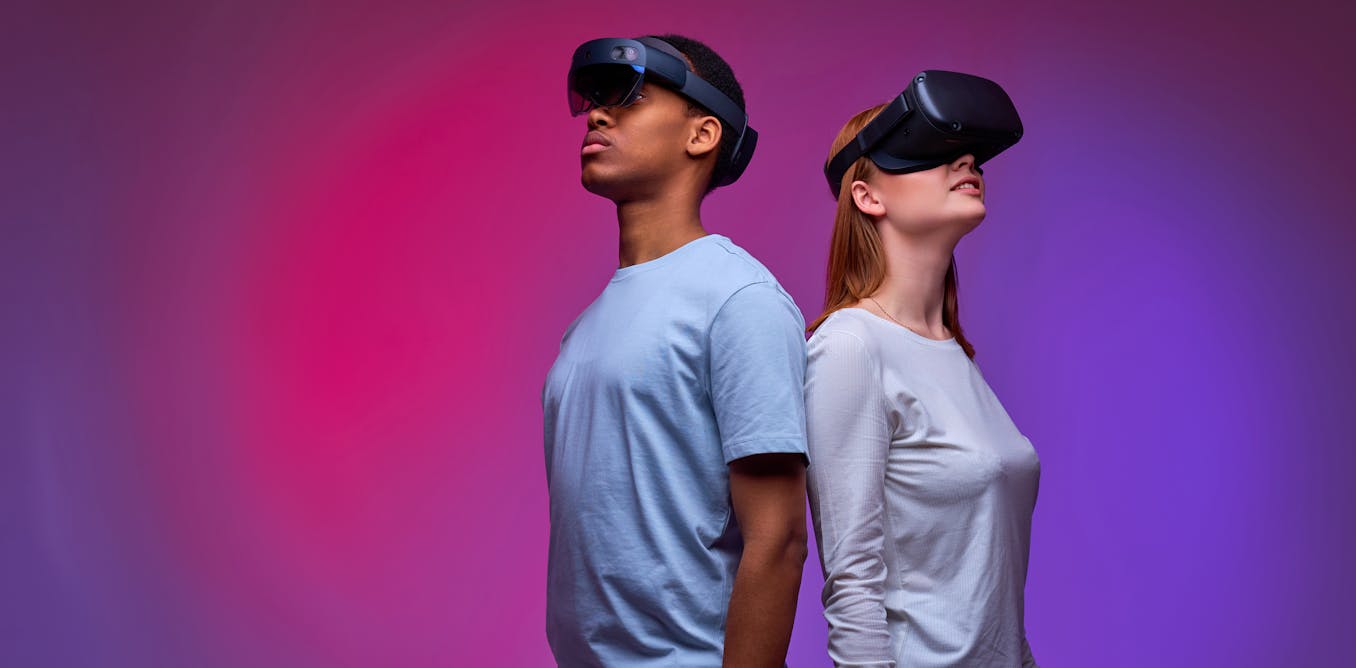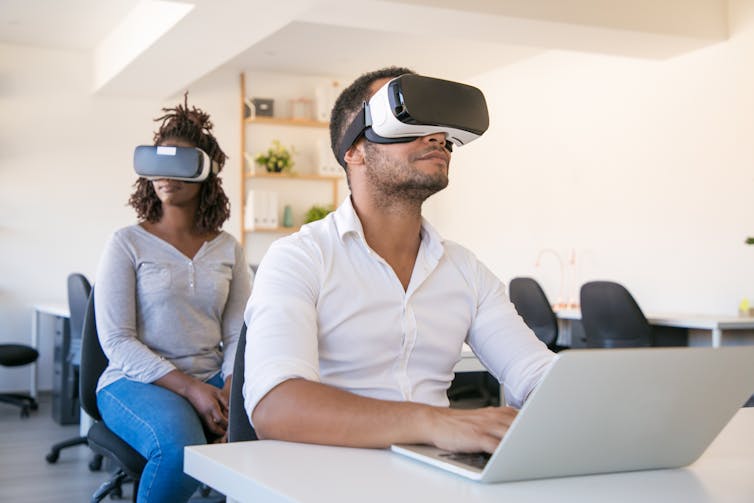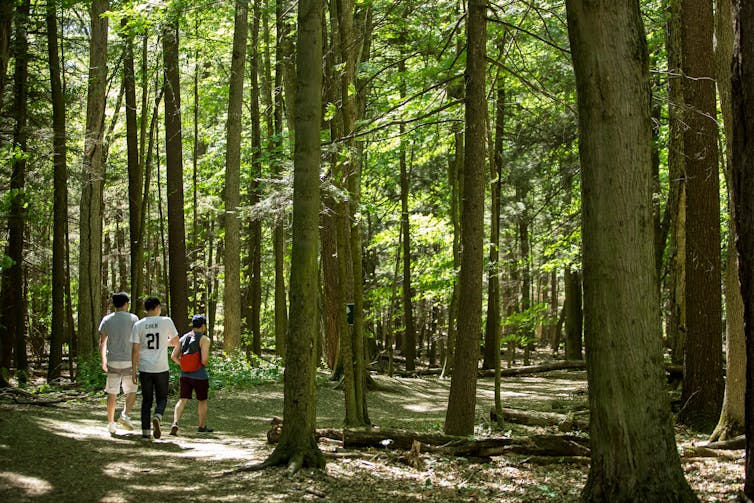Why virtual reality nature can’t provide the same wellness benefits as the real thing

مجلة المذنب نت متابعات عالمية:
As nature connection researchers, we’re aware of the innumerable benefits of spending time outside in nature. We’re also aware that, like so many other interactions, immersing oneself in nature is an experience that is now available virtually. In fact, virtual reality (VR) companies now promote VR nature as tools for corporate wellness.
Some universities have also added VR to staff or student services. When we learned that our staff association at University of Waterloo was offering a new wellness initiative linked to nature, our excitement faded upon realizing the initiative wasn’t about real nature — such as encouraging staff members to take regular breaks to sit by the stream on campus, or to walk around nearby Columbia Lake — but VR nature.
Headsets would be available for use in libraries pre-loaded with the Nature Treks VR app, which lets users explore natural settings like beaches, greenery and oceans, choosing the time of day and the weather.
Waterloo is not the first institution to turn to such tools to support well-being. The McGill Student Wellness Hub similarly offers VR sessions with “Mindful Escapes,” an app in which users can “embark on virtual journeys to serene landscapes, calming forests, ocean depths or mountain adventures.”
VR nature appears to be a wellness trend.
Technological nature
(Shutterstock)
We’re skeptical that VR nature will enable the diverse benefits that real nature offers. What might be the consequences of such “technological nature” — nature mediated and augmented by a technological interface?
Peter H. Kahn of the University of Washington, who has done foundational work in this field, concludes from a multitude of studies that:
“in terms of human well-being, technological nature is better than no nature, but not as good as actual nature.”
Turning to technology such as VR headsets for nature immersion contributes to what one expert in environmental psychology, Susan Clayton, calls a transformation of experience. First, VR allows the user to control and therefore optimize and homogenize their nature experience, perhaps selecting only glorious weather and the most sensational or pristine wilderness. Technologically optimized depictions of nature “may lead people to be less interested in, or satisfied by, messy, unexciting, local ecosystems.”
Might VR headsets diminish users’ appreciation of immersive and restorative nature experiences that can be found in their local greenspace?
Sensory immersion

(Shutterstock)
Second, VR headsets fail to provide the sensory immersion and embodiment of actual nature. Sensory inputs such as smell, sound, touch and sight are all intertwined in the complex relationship between nature immersion and well-being, but VR headsets remove the sensuality of nature experiences.
For example, stimulating one’s sense of touch can lead to increased psychological restoration and numerous tree species produce chemical compounds that have psychological and physiological benefits. The rapidly growing area of research on the microbiome-brain connection stresses the importance of encountering beneficial bacteria through contact with soil, something that a VR headset cannot replicate.
And finally, a recurrent issue with VR headset use is the onset of “cybersickness,” nausea that appears to be exacerbated by walking or movement. This may make users of VR headsets wary of moving while wearing the headset, which is another disadvantage compared to being outside free of one.
In addition to losing these facets of experience in nature, another factor we wonder about is the evidence base for purchasing these devices. The study cited in the University of Waterloo announcement, which specifically evaluates the efficacy of Nature Treks VR for wellness, lacked a control group and had a small sample size. The study authors state that due to their lack of a control group, “a causal relationship between the VR experience and participants’ mood could not be established.”
More research on the contrast between VR and real nature for well-being must be undertaken to rigorously compare the two.
Access and equity issues

THE CANADIAN PRESS/Giordano Ciampini
VR nature experiences may appeal to those who did not grow up with opportunities to have immersive experiences in nature and thus don’t feel entirely comfortable there. They may also appeal to those who have accessibility limitations.
However, defaulting to VR could contribute to the existing inequity in access to the benefits of real nature immersion. It may make it easier to turn to technological nature experiences rather than developing accessible nature programming.
Read more:
How cities can avoid ‘green gentrification’ and make urban forests accessible
The disparities in benefits between the virtual and real nature experiences raise a big question: why are wellness initiatives investing in these new tech tools rather than hands-on experiences that prioritize sensory immersion?
Funding opportunities often seem to favour the new “techno-fix” that offers a streamlined and simple solution. But the introduction of such tools necessitates reflection on values of workplace wellness. Is the goal to attain wellness as efficiently as possible, instead of aspiring to the most effective modalities?
Rather than donning headsets, we encourage people to engage in simple outdoor activities to cultivate a deeper connection with nature. There’s a lot to be said for making use of whatever green space you have access to: go outside, slow down and, if possible, smell the proverbial roses.
نشكركم على قراءة المنشور عبر مجلة المذنب نت, المتخصصة في التداول والعملات الرقمية والمشفرة














